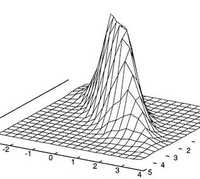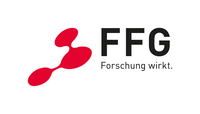
KONFERENZ IM RAHMEN DER ÖSTERREICHISCHEN EU-RATSPRÄSIDENTSCHAFT ZUM THEMA:
5-6 NOVEMBER, 2018, Austrian EU Council Presidency Conference Austrian EU Council Presidency Conference on Impact of R&I Policy at the Crossroads of Policy Design, Implementation and Evaluation Research and Innovation (R&I) policy is more than ever charged with demonstrating societal impact. If the new impact agenda of R&I policy is taken seriously, than this has several implications for policy design, implementation and evaluation. This largest European R&I policy evaluation conference is devoted to the challenge of generating, understanding and assessing societal impact through R&I policy. It discusses new rationales and new demands for R&I policy in service of society, reflects challenges [...]

„FUTURES LITERACY FOR NEXT-GENERATION R&I POLICY” – SEMINAR AND WORKSHOP
Organized by AIT Austrian Institute of Technology, Joanneum Research and the Austrian Platform for Research and Technology Policy Evaluation in cooperation with UNESCO. What the future holds seems to be associated with ever greater uncertainty for many people. We live in a complex, rapidly changing world. As a result, there is an increasing need for structured anticipation of possible future paths that may challenge our current practices and institutions. This phenomenon can be observed especially in the field of research and innovation policy. It is increasingly challenged to initiate future developments of benefit to society, embracing innovations that include technological developments [...]

ONLY FOR FTEVAL MEMBERS – “The Evaluation Market in the RTI Area in Austria”
Results of the market study commissioned by the Austrian Platform for Research and Technology Policy Evaluation Evaluations take place at different levels, from programs to institutions or organizations. Austria is among the European leaders in terms of the number of evaluations in the area of RTI. External studies underline the high professionalism of Austrian FTI evaluations. Evaluation designs and applied method sets are essentially considered appropriate, and recommendations for further development are considered relevant. However, in recent years there has also been some criticism of the Austrian evaluation market, which, according to evaluators of evaluations, focuses on (i) a few evaluation providers, is [...]

„Neue Herausforderungen an verantwortungsvolle und (teil)automatisierte Forschungsbewertung“
by Lambert Heller Researchers, research results, as well as research projects and institutions are continuously subjected to systematic evaluations. Based on peer review, but also on data such as publication frequency and citations, indicators derived from it such as h-index, journal indicators and others, committees are constantly making decisions that have a formative character for the entire research practice, from attitudes and vocations to for third-party funding. The use and development of these rating systems has never been more challenging than it is today. On the one hand, because the immediate output of research is becoming ever more diverse - in [...]

What can one learn from evaluations for the (new) RTI strategy?”
The Federal Government's RTI strategy officially expires in 2020. A new strategy is currently in preparation. FULLY BOOKED! Background:The Federal Government's RTI strategy officially expires in 2020. A new strategy is currently in preparation. At the same time, during the last 10 years, dozens of evaluations of parts of the RTI system in Austria have taken place. The FTEVAL takes this as an opportunity to question critically what can actually be learned from the multiple evaluations for the (new) RTI strategy. To this end, in a first step, three impulse panels will mark the frame. These referenced key findings from the [...]
Evaluation Culture: What is needed? What is possible?
Evaluation Culture: What is needed? What is possible? Katharina Warta & Klaus Schuch (fteval) will discuss with you evaluation culture.

Gender Equality Policies Revisited
Monitoring of the implementation of the ERA Roadmap's Priority 4 Martin Schmid (BMBWF) presents recent developments regarding the European Research Area (ERA). Angela Wroblewski (IHS) explains the methodological approach and central results of the analysis of the implementation of ERA priority 4 (gender equality). Roberta Schaller-Steidl (BMBWF) provides an input, how the methodology can be used for Austria's higher education policy. This analysis developed criteria of best practices that can be used for the further development of equality policies. A concrete example is presented for illustration. No registration required. 19.10.2020 14:00 Please join my meeting from your computer, tablet or smartphone. [...]

fteval Symposium “Committment in internal Evaluations”
How is committment generated during internal evaluations? This symposium discussed benefits and obstacles in internal evaluations. Invitation and Programme [PDF, German] Presentation slides [in German] Meike Olbrecht, Alexander von Humboldt-Stiftung Thomas König, Institut für Höhere Studien Patrick Lehner, Ludwig Boltzmann Gesellschaft Discussants' results and discussion [in German] Michael Hofer, Universität Wien Hintergrundfolien und Ergebnisse der Diskussion The event's language was German. Venue: Online. For further details we kindly ask for a registration. Time: 30.11.2020 14:00

The Graz STS-Conference 2021 will be held online from 3-5 May 2021
The joint conference by IFZ at the Graz University of Technology and the IAS-STS will be held online 3-5 May 2021 https://sts-conference-graz.tugraz.at

Event on Econometrics in Evaluations
onlineWhat can econometric methods do - what can they not? Innovation activities, especially research and development, are publicly funded in many ways (tax incentives or directly through R&D grants, guarantees and liabilities). Knowledge of the impact of funding is essential for funding institutions and policy makers. In recent years, the availability of innovation data has increased. At the same time, the spectrum of statistical and econometric methods has expanded, especially methods that measure the causal effect of funding. The aim of the discussion event is therefore to provide an overview of econometric methods for the causal estimation of funding effects in [...]

Evaluating “Impact Innovation”
FFG and fteval Platform invite to an on-line Workshop to reflect aspects of evaluating FFG's "Impact Innovation" programme. Since 2017, the FFG has been funding projects for the development of innovative solutions within the framework of Impact Innovation. Based on an unsolved but defined problem, solution ideas are to be developed together with users, customers or other relevant stakeholders. Impact innovation is intended to support innovations that do not necessarily arise from R&D projects. Among other things, social innovation, business model innovation, process innovations (etc.) are to be promoted through processes such as open innovation, design thinking (etc.), which have so [...]
REvaluation Conference 5-6 May 2022
European Conference on RTI Evaluation Policy on 5-6 May 2022 Previously planned to take place November 2021, the REvaluation Conference - Europe's largest RTI Policy Evaluation Conference will take place in Vienna 5-6 May 2022. It is jointly organised by the fteval platform together with Fraunhofer ISI and IFRIS - Institut Francilien Recherche Innovation Société, Paris exploring the role of science and technology policy’s in societal transformation, resilience and anticipation. For detailed information and registration, please visit www.revaluation2021.eu ! Many thanks to all our supporters and sonsors who make the REvaluation Conference possible! (Registrations via the in-built function on the bottom [...]

